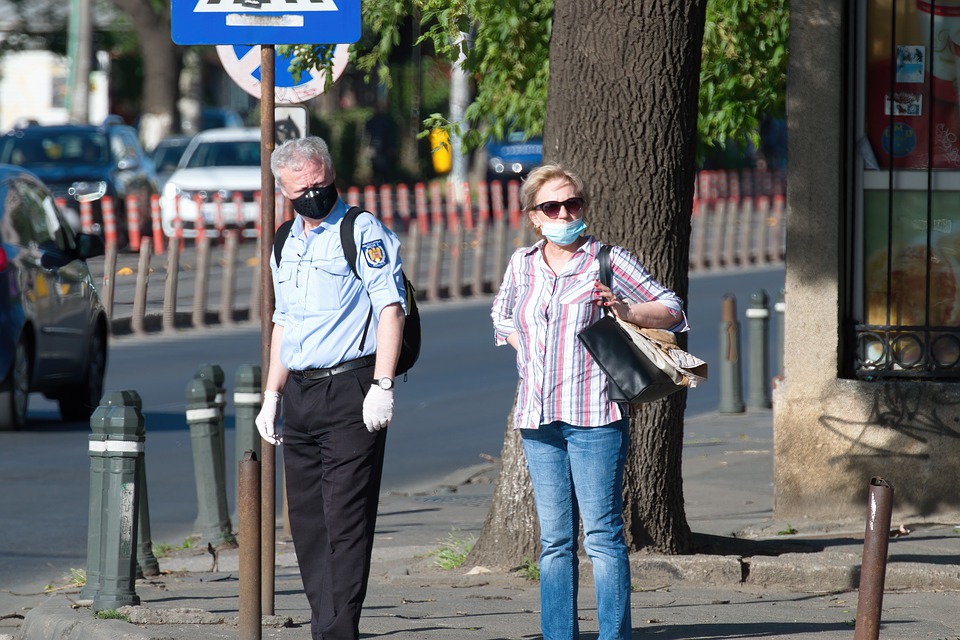Translating deep thinking into common sense
A Society Masked Into Subservience

By Keith Weiner
July 24, 2020
SUBSCRIBE TO SAVVY STREET (It's Free)
The response to COVID-19 has been breathtaking. Both sides of the political spectrum quickly agreed to shut down and suffocate the economy. And even before that, countless homeowners’ associations, condominium boards, retailers, and corporate employers beat the rush and shut down their facilities voluntarily.
We quickly ended up in a world that no one has thought much about, and few would want. People were forced into isolation. They were not allowed to go to work, or to bars and restaurants, much less sporting events or concerts. They were discouraged from even going to backyard barbeques.
There is nothing social about maintaining the kind of fear of others that forces one to keep one’s distance at all costs.
When we are allowed/required to go out in public, we are told to maintain social distancing. This is a newspeak word if ever there was one. There is nothing social about maintaining the kind of fear of others that forces one to keep one’s distance at all costs. For example, people now walk the long way around aisles in grocery stores (some stores require one-way walking only: up one aisle, down the next). And notably where I live in the hot desert, they stand in the blazing Arizona summer sun, waiting for permission to enter a store.
We have also done away with handshakes, much less hugs, and kissing on the cheek.
So-called social distancing is unsocial, even anti-social. It is further isolating people. Isolation is lonely, depressing, and alienating.
So-called social distancing is unsocial, even anti-social. It is further isolating people. Isolation is lonely, depressing, and alienating.
People are encouraged to think of their friends as potentially lethal threats (if they aren’t, then why must we avoid them at all costs?). But this causes a psychological dilemma. How can anyone simultaneously look at his neighbors as a threat, and at the same time turn to his neighbor for help or collaboration? These two views are almost impossible to hold in one brain.
If others are deadly threats … then they are bad. We saw this each time one state had a rising count of COVID cases. There was a palpable sense of fear-and-loathing of New Yorkers. Some states talked of prohibiting New Yorkers from entering, and did so. An otherwise-peaceful person I know recently lamented the fact that the U.S. did not have a mechanism for checking where someone came from, when they drove across “the border” into another state. I said yeah, well, that mechanism is characteristic of the Soviet Union and Mao’s China. This person was a bit uncomfortable, but did not back away from wishing for it to come here.
It’s a lethal but compelling thought progression.
It’s a lethal but compelling thought progression. It encourages everyone to regard everyone else they meet as a threat. Which leads to distrust. Which leads to fear.
Of course, not all businesses were locked down. Some were defined by government order as essential. This, in effect, tells everyone that owns or works in other kinds of businesses, “We don’t need you.” Such non-essential people (or non-people for short) could ponder their own uselessness while they were forced to watch their businesses and livelihoods ruined, their savings wiped out: While they drowned, held under by a government posturing as doing good for the health of the people.
Most governments have unlocked to varying degrees, though many are regressing back towards lockdown again.
And they have held out wearing masks as the one thing we can do, if not to avoid getting sick with COVID, to avoid more lockdown. There are problems with masks: they are uncomfortable, they make people touch their faces more (which they should not do, if they are concerned about catching a disease), and for some people they make it hard to breathe.
Interestingly, I had a conversation with someone I know. He is a doctor and extremely fit physically. He said he wears an N95 mask in his practice all day. I asked if it was professionally fitted. He said no, that fit makes it too hard to breathe if worn all day. The one he (and everyone else) is using, even if N95, is easy enough to breathe in because of the huge gaps, especially on the sides of the nose. It’s easier to breathe because the air is moving through the path of least resistance—around the filter, and not through it.
More to my point today, masks have a universal negative. Wearing them makes people less recognizable, less relatable. Less human.
So we are isolated from most human contact, and when we are forced to be with other people we are given reason to fear them. And we cannot see their entire faces. They are literally masked.
This brings us to the communist view of man: people are faceless, interchangeable automatons. They are stripped of their individual identity.
This brings us to the communist view of man: people are faceless, interchangeable automatons. They are stripped of their individual identity. And they know it. They cannot turn to their neighbors as they did for centuries. They can turn only to the government. They have even been encouraged to report neighbors who do not follow the “guidelines” and many have done so voluntarily out of fear.
Is this the world you want to live in? Even if masks could prevent people from ever catching the disease (and not merely slowing down the rate of spread) it would be better to risk the complications of COVID than to live in the kind of society that this kind of fear is leading us towards.








